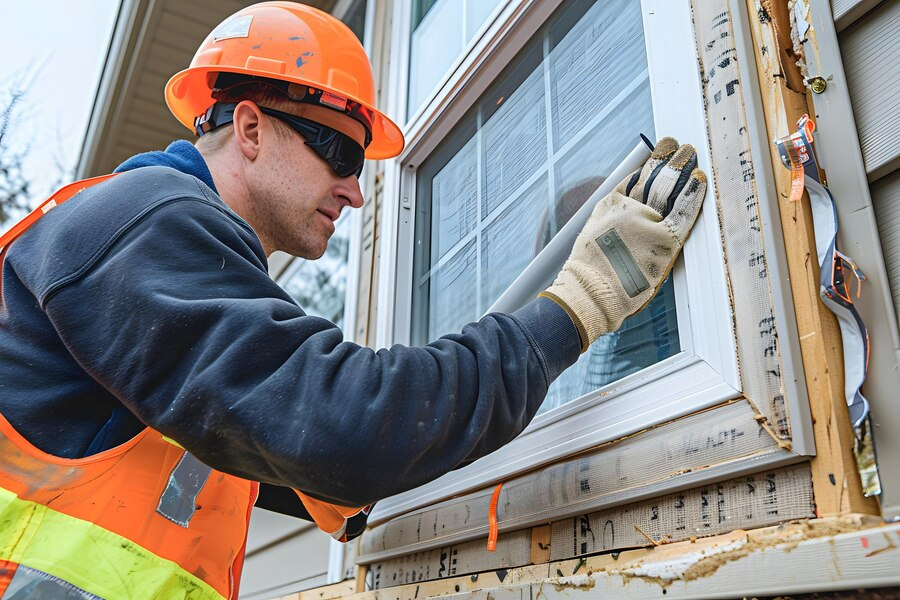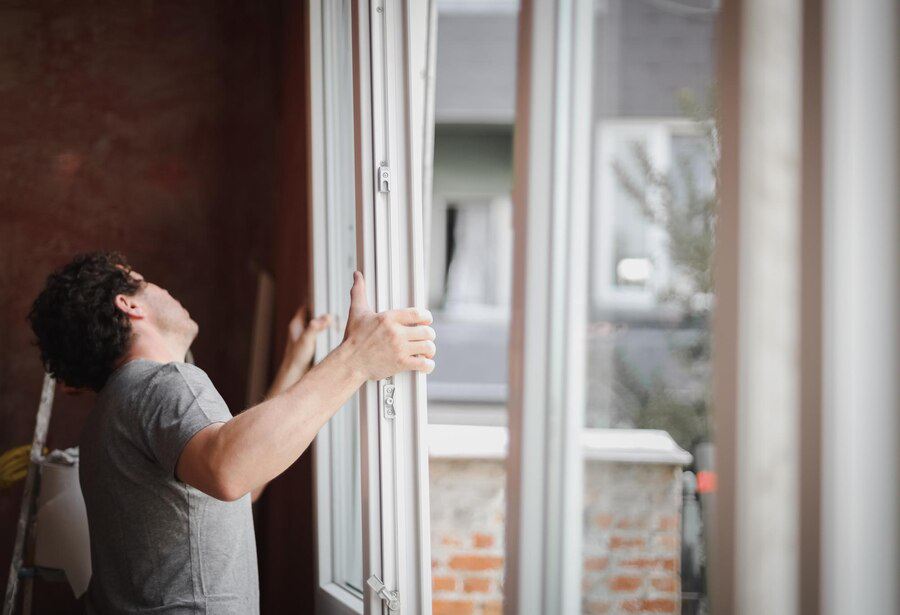
Why Replacement Windows Are a Smart Upgrade
Upgrading your windows might not be the first home improvement project on your list, but it’s one that can deliver significant benefits. Replacement windows are more than just an aesthetic enhancement; they are a smart investment in your home’s efficiency, comfort, and value. Modern windows are designed with advanced materials and technologies that help to better insulate your home, reduce energy bills, and minimize outside noise. By upgrading to high-quality replacement windows, you not only enhance your home’s curb appeal but also create a more comfortable living environment. Moreover, the benefits of replacement windows extend beyond immediate savings and comfort. Many new windows come with energy-efficient ratings and features that qualify for tax credits or rebates, further increasing the return on your investment. In this blog, we’ll delve into the various advantages of replacement windows, explore the impact on energy efficiency, and offer tips on selecting the right windows for your home.
Enhancing Energy Efficiency with Modern Windows
When it comes to upgrading your home, energy efficiency should be a top priority. Modern replacement windows play a crucial role in enhancing the energy efficiency of your home, providing a multitude of benefits that can lead to significant long-term savings and improved comfort. Let’s delve into how these advancements contribute to better energy performance and why they are a smart choice for homeowners.

Advanced Insulating Technologies
Modern replacement windows are designed with advanced insulating technologies that help reduce heat transfer. Multi-pane glass, often double or triple-glazed, creates layers of air or gas between the panes, which acts as an effective barrier against heat loss in the winter and heat gain in the summer. This insulation helps maintain a consistent indoor temperature, reducing the need for heating and cooling and ultimately lowering your energy bills.
Low-E Glass Coatings
Low-emissivity (Low-E) glass coatings are a hallmark of energy-efficient windows. These microscopic layers of metal or metallic oxide are applied to the glass to reflect heat while allowing natural light to pass through. Low-E coatings help minimize UV rays and infrared radiation, keeping your home cooler in the summer and warmer in the winter. This technology not only enhances energy efficiency but also helps protect your furnishings from fading due to sun exposure.
Argon and Krypton Gas Fill
To further improve insulation, many modern windows are filled with argon or krypton gas between the panes. These inert gasses have a lower thermal conductivity compared to air, reducing the amount of heat that transfers through the window. This additional layer of protection contributes to better temperature regulation inside your home, making your heating and cooling systems work less and ultimately saving you money on energy costs.
Improved Window Frames
The materials used for window frames have also evolved significantly. Modern window frames made from materials such as vinyl, fiberglass, or composite offer superior insulation compared to traditional wooden or aluminum frames. These materials are less prone to temperature fluctuations and do not conduct heat as easily, which helps in maintaining the overall energy efficiency of the window.
Airtight Seals
Proper sealing is critical for preventing drafts and leaks. Modern replacement windows are designed with high-quality seals and weatherstripping to ensure a tight fit within the window frame. This prevents air leakage, which can lead to energy loss and increased heating or cooling costs. Airtight seals also help in improving indoor comfort by eliminating drafts and reducing temperature fluctuations.
Choosing the Right Replacement Windows for Your Home
Selecting the right replacement windows for your home is a crucial decision that impacts not only the aesthetics and comfort but also the overall energy efficiency and security. With a variety of options available, it’s essential to consider several factors to ensure you make the best choice. Here’s a comprehensive guide to help you navigate the process and choose windows that meet your needs.
Assess Your Home’s Style and Architecture
The style and architecture of your home play a significant role in determining the best type of replacement windows. For instance, traditional homes often benefit from classic styles like double-hung or casement windows, while modern homes might look best with sleek, minimalist designs like sliding or picture windows. Matching the window style to your home’s architecture ensures a cohesive and aesthetically pleasing appearance.
Consider Energy Efficiency Ratings
Energy efficiency should be a key factor in your decision-making process. Look for windows with high energy performance ratings, including the U-factor (measuring heat transfer) and the Solar Heat Gain Coefficient (SHGC). Windows with low U-factors and appropriate SHGC values can help reduce energy costs and improve indoor comfort. Check for certifications from organizations like ENERGY STAR to ensure you’re selecting windows that meet high energy efficiency standards.
Choose the Right Frame Material
The material of the window frame impacts both the performance and maintenance requirements of your windows. Common frame materials include vinyl, wood, fiberglass, and aluminum: Vinyl: Known for its durability and low maintenance, vinyl frames are resistant to moisture and don’t require painting. Wood: Offers a classic look and excellent insulation but requires regular maintenance to prevent rot and warping. Fiberglass: Provides superior strength and insulation with minimal maintenance, though it can be more expensive. Aluminum: Durable and lightweight, but less energy-efficient unless thermally broken to reduce heat transfer. Consider your budget, climate, and maintenance preferences when choosing the frame material.
Evaluate Glass Options
The type of glass used in replacement windows affects energy efficiency, noise reduction, and overall comfort. Consider the following options: Double or Triple Glazing: These configurations use multiple layers of glass to improve insulation and reduce noise. Low-E Glass: Coated with a thin metallic layer to reflect heat and UV rays, enhancing energy efficiency and protecting interior furnishings. Tempered or Laminated Glass: Provides added safety and security by making the glass more resistant to impact and breakage. Selecting the right glass type based on your needs and climate conditions can significantly enhance the performance of your windows.
Decide on Window Functionality and Operation
Different window styles offer various benefits in terms of functionality and ease of operation. Consider how you use the windows and what features are most important: Double-Hung Windows: Allow for easy ventilation and cleaning as both sashes can be moved. Casement Windows: Open outward with a crank mechanism, offering excellent ventilation and a tight seal. Sliding Windows: Move horizontally and are ideal for wide openings with limited space for operable windows. Picture Windows: Fixed windows that provide unobstructed views and maximum natural light but do not open.
Boosting Curb Appeal and Home Value
Upgrading your windows is not just about improving energy efficiency; it’s also a powerful way to enhance your home’s curb appeal and overall market value. Modern replacement windows can transform the appearance of your home, making it more attractive to potential buyers and increasing its resale value. Here’s how new windows can make a difference:
- Updated Aesthetics: New windows offer a fresh and modern look that can significantly improve your home’s exterior appearance. Sleek frames, stylish designs, and energy-efficient features contribute to a more polished and attractive facade, giving your home a contemporary upgrade that catches the eye.
- Enhanced Architectural Harmony: Replacement windows can be customized to match your home’s architectural style, whether it’s traditional, contemporary, or somewhere in between. Choosing windows that complement the existing design helps maintain architectural integrity and enhances visual appeal.
- Increased Home Value: Investing in high-quality, energy-efficient windows can increase your home’s resale value. Potential buyers often look for modern, well-maintained features, and new windows can be a significant selling point. Homes with upgraded windows often stand out in the real estate market, leading to quicker sales and potentially higher offers.
- Boosted First Impressions: Curb appeal is crucial when it comes to making a great first impression. New windows can revitalize your home’s exterior, making it more inviting and appealing. This can be especially beneficial if you’re planning to sell, as a well-maintained exterior can attract more prospective buyers.
Conclusion
Upgrading to replacement windows is not only a wise investment in your home’s aesthetics and energy efficiency but also a step towards long-term savings and comfort. With advancements in technology and design, modern replacement windows offer enhanced insulation, reduced maintenance, and increased property value. By choosing to replace your old windows, you’re making a choice that benefits both your home and your wallet.
For those ready to take the next step towards a more efficient and beautiful home, EZ Window Solutions of Cleveland is here to help. Our team of experts is dedicated to providing high-quality window solutions tailored to your needs. Contact us today at 440-773-4396 to schedule a consultation and discover how our replacement windows can transform your home.


Write a Comment